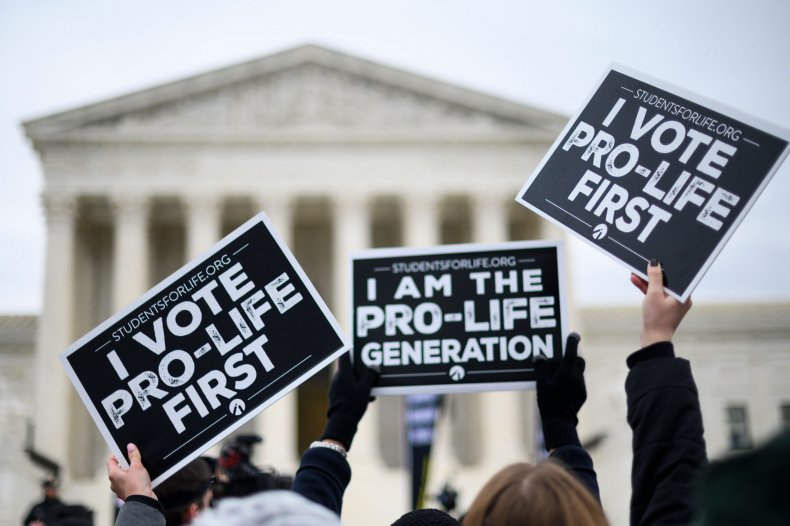Sixth Circuit Abortion Ruling is a Modest but Real Protection | Opinion
Last week, the Sixth Circuit Court made a notable decision in the ongoing judicial battle over abortion. The case concerned an Ohio law regulating abortions related to a diagnosis of Down syndrome in an unborn child. The Sixth Circuit reversed a lower court's injunction of the law, which had prohibited its enforcement until judicial challenges to it concluded. In so reversing, the court argued the law likely was constitutional.
The dissenting judges, along with numerous news outlets, wrongly read the law as banning abortions of unborn children diagnosed with Down syndrome. The law does no such thing. Under this law, women may abort for any reason, including for Down syndrome. They are not required to given any reason at all, in fact.
Rather, the law prohibits doctors from performing abortions when they know a Down syndrome diagnosis is the reason. Thus, if the doctor does not know the reason for an abortion, the law does not prohibit the procedure. Even when one doctor knows, a woman may go to another to terminate the pregnancy.
Though those in the pro-choice movement find this law alarming, pro-lifers might see it as unsatisfying. The majority opinion upholding the law went to great lengths to show how the statute does not stop women from aborting. A ban on abortions only when doctors know a particular underlying reason seems easily evaded, and thus of little or no consequence.
While falling short of the full protections for the unborn that pro-lifers crave, the law does help in subtle but real ways. Ohio gave three justifications for the statute. First, it seeks to give some protection to the "Down syndrome community" from targeted and thus discriminatory abortions. Second, the law aims to shield mothers from pressure by doctors to abort in reaction to a Down syndrome diagnosis. Third, the law protects the "the integrity and ethics of the medical profession by preventing doctors from becoming witting participants in Down-syndrome-selective abortions."

The first two reasons intend some limitation of abortion in real terms. Regarding the first, the ban will present certain (not undue) burdens to finding a doctor who can legally abort, thus potentially stopping some from happening. The second gives even greater protection. In the current pandemic, we can see how much pressure "experts" in the medical field can exert on persons not so trained. This law does not remove possible pressure to abort from other doctors, like one's general physician. But it does stop abortion doctors, when the critical decision is finally made, from pressuring women.
Taken with the third reason, the Ohio law does something less concrete but potentially of great significance. It expresses moral opposition to aborting on the basis of special needs. Calling such abortions "discrimination" says that children with Down syndrome should hold the same status in our eyes as all others, both among the public generally and among doctors in particular.
The law makes a clear statement to the public regarding the status of these children. And regarding doctors, why would the state present this law as protection for medical ethics unless it assumes selective abortion of children with Down syndrome is itself unethical? Why attempt to prevent circumstances in which doctors could apply pressure to abort Down syndrome children if such situations presented no moral problems? And, finally, these arguments imply that certain distinctions we make ultimately lack relevant difference, like that between the lives of the born and the unborn in general.
Ohio did more than express these positions. It made them the law of the state. It declared the equal status of special needs children, and the ethical wrong of targeting them, as a public statute of the people of Ohio. As the definition of law includes an authoritative command for right and against wrong, we should not take this move lightly.
Granted, these principles' enforcement remains narrow, largely due to restraints placed by Supreme Court precedents. In most instances, the Ohio law will hide an abortion's intentions rather than stop its actualization. Yet that hiding, too, is of moral consequence. We hide those things in which we lack pride. We conceal those intentions and actions for which we feel moral remorse. So Ohio feels about abortions targeting the Down syndrome community.
Thus, the Ohio law is a modest restraint, a small protection for the unborn with special needs. But it is a restraint nonetheless; a protection, still.
Adam Carrington is the Assistant Professor of Politics at Hillsdale College. He is currently at Princeton University's James Madison Program as a Garwood Visiting Fellow.
The views expressed in this article are the writer's own.


